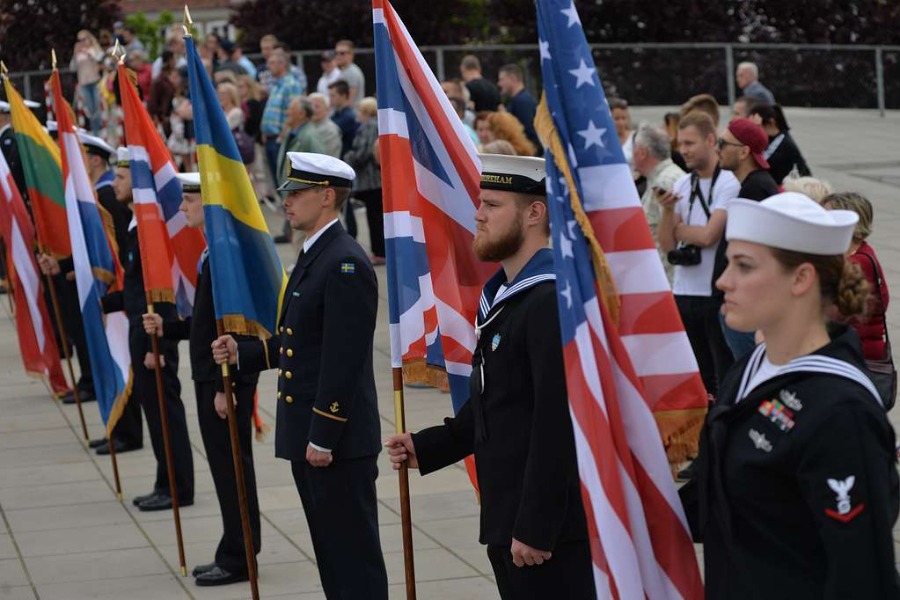Military Commissions Compared to Civilian Prosecution in Federal Court: A Revealing Snapshot
If you have paid any attention to the topic of military commissions over the past sixteen years, you do not need me to tell you of the troubles they’ve faced. Whatever their merits in theory (and I do think they have many), in practice they have been vexed beyond belief. Proceedings in cases of immense importance—above all, prosecution for mass murder on 9/11—threaten to rival Jarndyce and Jarndyce for their seemingly-intractable longevity. This is the opposite of what the founders of the system sought in fall 2001.
If you have paid any attention to the topic of military commissions over the past sixteen years, you do not need me to tell you of the troubles they’ve faced. Whatever their merits in theory (and I do think they have many), in practice they have been vexed beyond belief. Proceedings in cases of immense importance—above all, prosecution for mass murder on 9/11—threaten to rival Jarndyce and Jarndyce for their seemingly-intractable longevity. This is the opposite of what the founders of the system sought in fall 2001.
Events over the past month, moreover, suggest that the problems are getting worse. Most conspicuously, the judge presiding over the USS Cole trial has grown so frustrated with the endless difficulties that have arisen in that case (above all the decision by the defense team that it cannot ethically proceed with the case and resulting clashes over his own power to supervise that determination) that he quite literally declared himself “out” and abated all further proceedings in the case. This came on the heels of a decision by the Pentagon to fire the commission system’s convening authority as well as the convening authority’s legal adviser. And it was followed in short order by the government’s default on its plea-agreement obligation to arrange the transfer to Saudi Arabia of a defendant whom the government concedes met his end of the bargain not only by pleading guilty years ago but also by testifying against other defendants since then (a failure that looks to have been a matter of misfeasance rather than malfeasance, but that nonetheless will cast a significant shadow over future plea negotiations).
Compare this with events over the same month in relation to Justice Department prosecutions in civilian Article III courts, focusing just on cases involving al-Qaeda and the Islamic State. (The snapshot is based on a shorter list I mentioned during Episode 60 of the National Security Law Podcast, my weekly show with Steve Vladeck). Again, this snapshot covers only the past month:
- Feb. 23—Former Police Officer Sentenced for Attempting to Support ISIS: A fifteen-year sentence for a former New York Metro Transit cop who attempted what amounted to financial support for the Islamic State and who thereafter obstructed the investigation.
- Feb. 21—New York Man Pleads Guilty to Attempting to Provide Material Support to ISIS and Passport Fraud: A guilty plea by a New York man who attempted in various ways to support the Islamic State and who had purchased a variety of weapons for himself including a “pocket chainsaw.”
- Feb. 16—New York Man Pleads Guilty to Attempting to Join ISIS in Yemen: A guilty plea by another New York man who attempted to join the Islamic State in Yemen.
- Feb. 16—Al-Qaeda Operative Sentenced to Life in Prison for Terrorism Offenses Targeting Americans Overseas: A life sentence for a Saudi man who joined al-Qaeda prior to 9/11 and who later participated in attacks on U.S. soldiers in Afghanistan.
- Feb. 13—Chelsea Bomber Ahmad Khan Rahimi Sentenced to Life in Prison for Executing September 2016 Bombing and Attempted Bombing in New York City: A life sentence for a New Jersey man, inspired both by al-Qaeda and the Islamic State, responsible for bombings and attempted bombings in New York and New Jersey in 2016.
- Feb. 12—ISIS Supporter Sentenced to Prison for Firearms Offense: A ten-year sentence for a Virginia man who became an Islamic State supporter during a recent prison stint and then unlawfully acquired a firearm after his release.
- Feb. 9—Florida Man Pleads Guilty to Conspiring to Provide Material Support to ISIS: A guilty plea by a Florida man who attempted to travel to Syria to join the Islamic State.
- Feb. 6—Saudi Citizen Charged in Oklahoma With Concealing Attendance at Al Qaeda Training Camp: Charges filed against a Saudi man who lied about having attended al Qaeda’s al Farooq training camp in 2000 (and who recently attempted to enroll in a flight school).
- Feb. 6—New York Man Sentenced to 18 Years for ISIS-Directed Terrorist Attacks in New York City: An eighteen-year sentence for a New York man who was part of an Islamic State-inspired conspiracy to set off pressure-cooker bombs in New York.
- Jan. 23—Ohio Man Sentenced for Providing Material Support to Terrorists, Making False Statements to Authorities: A 22-year sentence for an Ohio man who traveled to Syria to join al-Qaeda’s al-Nusrah Front and who explored possible attacks in the United States upon his return.
What does this demonstrate?
It is evidence of capacity and competence. When it comes to actually and fairly processing criminal cases, nothing compares to the combination of Justice Department prosecutors, Federal Public Defenders (or private counsel in some cases) and the judges and staff of the Article III federal courts. This snapshot does not prove that on its own, of course. But it provides considerable support, and it is truly just the tip of an extremely large iceberg of endlessly successful cases involving al-Qaeda and Islamic State supporters and members.
One might object that it is unfair to include Islamic State defendants in this set since no Islamic State members or supporters have ever been tried by military commission and because it is quite possible that the commissions lack jurisdiction to try them. It seems to me, however, that those two observations, if anything, count as further arguments in favor of civilian prosecution rather than continued investment in the commissions approach.
One might also object that the civilian court examples largely arise from within the United States and do not involve the special evidentiary difficulties that arise with overseas and battlefield captures. That too is a fair observation, but it does not bear much weight. First, not all the cases are of that (presumptively easier) ilk (see the fourth item on the list above). Second, the commissions have largely lost whatever procedural advantages they originally were intended to have in terms of easy admissibility of evidence collected in difficult overseas circumstances. Relentless pressures over the past sixteen years have led to so many revisions to the rules for the commissions that the procedural advantages they were designed to confer on the prosecution have largely disappeared. That point often goes unacknowledged, yet it is essential to understanding why the commissions no longer hold forth the prospect of significant procedural and evidentiary advantages for the prosecution.
None of this is to say that commissions should be abolished as to all circumstances and for all time. They should not be. Commissions arose originally because there are combat circumstances in which a commission may provide the only realistic prospect for doing justice, and at least to that degree they should remain available. Where there is a perfectly reasonable civilian trial alternative, however, and especially where that alternative indisputably is more likely to resolve a case within a reasonable period of time, the case for sticking with the commissions year-after-year falls apart.
It’s past time to move these cases to civilian courts, precisely so that justice can be done.


.png?sfvrsn=1f2a75b9_5)


